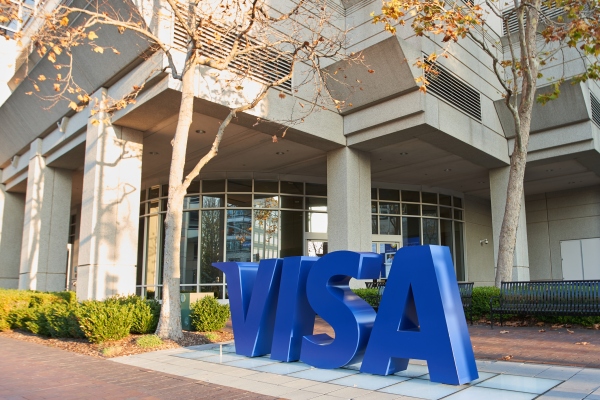Credit card giant Visa has launched an NFT creator program in an effort to bring small businesses into the digital economy.
“We’ve seen rapid growth in the NFT ecosystem over the past year,” Cuy Sheffield, head of crypto at Visa, told TechCrunch. “We think NFTs represent a new form of e-commerce.”
The idea of a small business is evolving from the traditional “brick-and-mortar mom-and-pop shops” to include other independent businesses with creators and entrepreneurs who want to build digital-focused companies and harness new tools like NFTs, Sheffield said.
The one-year immersion program, the Visa Creator Program, will bring together a global cohort of creators including artists, musicians, fashion designers and filmmakers the ability to build their businesses with NFTs.
There’s no “hard cap” on the number of creators for the first cohort and all members will have access to Visa clients and a broader network of mentors, Sheffield noted.
“Large merchants and brands are asking every day how they can get involved.” Sheffield said. “The thing that’s so exciting to us about NFTs is we think it lowers the barrier to entry for people to build a business and sell online.”
The traditional way of selling physical goods has a lot of logistics involved, which can be a huge challenge for small businesses and individuals to compete and scale. “NFTs allow someone who’s creative, who’s an artist, who’s talented, to produce a good entirely in a digital way,” Sheffield said.
Micah Johnson, a former Major League Baseball player and current artist behind Aku, was one of the first participants in the cohort. Visa previously announced the partnership in October 2021, but did not disclose that he was involved in the program at the time.
Johnson’s Aku NFTs are based on a character created by Johnson after hearing his nephew ask, “Can astronauts be Black?”
His 10-part collection consists of Black male astronauts posing in a range of elements from helmets covered in spaghetti and meatballs to a simple, sleek white helmet. The Aku NFTs range in price from $1,790 to $37,000, according to its website.
“I saw firsthand how NFTs can enable artists,” Johnson said to TechCrunch. “I was literally painting in my garage with this idea, this mission, and I’ve scaled it into a global company. I wouldn’t be in the position I am now without NFTs.”
Visa is no stranger to the crypto community and has been an advocate for it over the past 12 months. It previously made headlines for buying a popular CryptoPunk NFT in August 2021, and Sheffield has said that the purchase wouldn’t be the company’s only NFT under its belt.
Aside from collecting NFTs, Visa has built out its crypto team, and in December 2021 launched a crypto advisory practice to help clients and partners consider a deep dive into the space.
“We think that [NFTs] are a fundamental primitive tool that can reshape commerce and create new opportunities,” Sheffield said. “But there’s still a ton of questions around how does it evolve? Which blockchains to use? How do you stand out? How do you reach customers? And so we want to learn as much from the creators as we think they can learn from us.”
Going forward, Visa wants to embed itself in these crypto technologies to follow the future of commerce, Sheffield said. “We’re incredibly excited about NFTs,” Sheffield said. “We want every [NFT] marketplace to be able to accept Visa cards because we think NFT’s will exist across many different networks.”
As for next steps? Visa wants to make buying an NFT as easy as it is to buy anything else online, Sheffield said.
“What we’ve found is that the experience today can be pretty difficult and takes multiple steps of going to an exchange, buying cryptocurrency and transferring it over to another wallet. … It’s very difficult for new consumers to come into the space,” Sheffield said.
Aside from this program, the credit card company is looking into other ways to make NFTs more accessible for consumers to purchase and access. There are a “number of initiatives” that Visa is working on to make it easier for consumers to get into the space, but Sheffield did not disclose a timeline for future NFT-focused product launches or services with the company.
“Small businesses and commerce play a really important role in building community, in towns and neighborhoods across the world,” Sheffield said. “It’s a friendly face you see in a local barber [or] local bakery. And now what we’re seeing is creators are using commerce and NFTs to build like-minded communities of people all over the world that are coming together because they share a common set of beliefs, or ideals.”

